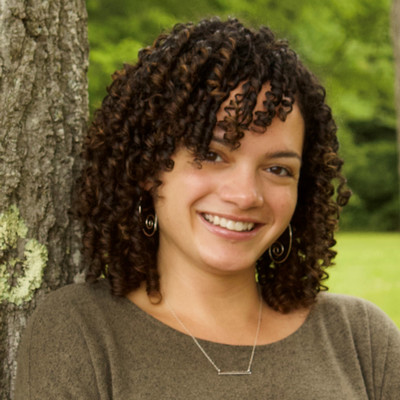 It’s a cliché, but choosing only one course at Heller to write about is tough. As someone who feared statistics, Applied Regression Analysis gets an honorable mention in my book. (Seriously, to all other prospective MPP’s who managed to avoid statistics in your life, your stats professor, Steve, has got you covered!) Yet I think it’s more important to take this moment to write a love letter to my favorite class, Assets and Social Policy.
It’s a cliché, but choosing only one course at Heller to write about is tough. As someone who feared statistics, Applied Regression Analysis gets an honorable mention in my book. (Seriously, to all other prospective MPP’s who managed to avoid statistics in your life, your stats professor, Steve, has got you covered!) Yet I think it’s more important to take this moment to write a love letter to my favorite class, Assets and Social Policy.
When I tell you I love Jessica Santos’s Assets course, I mean I looooove it. For me, it’s a perfect example of why I came to Heller. Assets and Social Policy teaches you how to examine the policies, practices, and norms that contribute to persistent poverty, concentrated wealth, and structural racial inequality in the US. Doesn’t that sounds exciting?!
Yes? No?
Wait, let me break down some of what we’ve learned before you decide.
I’m sure you’ve heard about the income gap between men and women as well as between white and non-white Americans. But have you examined the wealth gap? Check out these stats:
- White single women earn 72 cents to the white male’s dollar.
- White single women only own 32 cents to the while male’s dollar.
- The median income for White Americans is $60K; the median wealth is $110K.
- The median income for Black Americans is $35K; the median wealth is $7K.
Are you getting an idea for the stark contrast in wealth? Wealth is the total extent of an individual’s assets and resources (e.g. savings, real estate, stocks, etc.). But intangible assets (e.g. networks, knowledge, aspirational capital, etc.) can contribute to wealth as well. If we truly want to tackle poverty, we have to address the wealth gap in this country.
And that’s just the beginning (literally day 1). In this course, you’ll examine how assets affect a person or community’s social and economic course, what institutional conditions limit or expand opportunities for wealth accumulation, how policies can perpetuate disadvantages, and so much more. You’ll even compare urban and rural poverty and gain some new perspectives!
Getting excited now?
One month in, you’ll apply what you’ve learned in class to your own life by writing your Asset Story. If nothing else, this assignment is a great excuse to sit down with family members, learn about family history, and even discover something new about your ancestors! As a mixed, Black woman who was raised by two parents with sufficient income, I knew I carried quite a bit of privilege. Yet, in researching my Assets Story, I learned that tangible and intangible assets have equipped my family with privilege for generations. I never considered my Black grandparents as having privilege, but their assets (e.g. property passed down to them) freed up income that allowed them to better support their family. In addition, had my father not had neighbors who were college professors, he may have never formed the aspirations to establish the first Black law firm in Charleston, West Virginia.
I’d recommend this course to any student at Heller, as I believe it applies to all fields and can even be studied in an international context. This class and professor, Jess, have challenged me in the best ways. I haven’t finished the course yet but if I could take an Assets and Social Policy Part 2, I would in a heartbeat.
